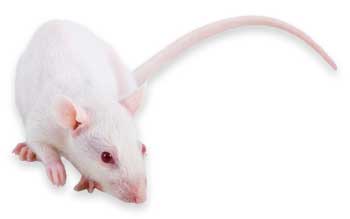Theory– Handling
of laboratory animals has a great importance in experimental pharmacology.
Animal we use in our laboratory, generally the rodents such as rats, mice
guinea pigs and rabbits are most of the common laboratory animals who can be
bred and if kept under ideal condition, provides a reliable supply of uniform
and healthy animals for the purpose of experimentation. etc. these animals are
usually used because they have anatomical similarity with human beings.
Animal
|
Rat
|
Mouse
|
Guinea Pig
|
Rabbit
|
Average weight
(in gram)
|
200
|
20
|
500
|
2000
|
Average life span
(in years)
|
03
|
02
|
02
|
05
|
Average age
suitable for experimentation
(in month)
|
04
|
02
|
04
|
06
|
Following are some commonly used laboratory
animals :-
Guniea pigs (400-600 gm) are used in various
experiment of pharmacology. They are highly sensitive to histamine. These
animals are docile in nature and very susceptible to tuberculosis, asthma
(bronchodilators) and to anaphylactic shock. They are also used to study local
anaesthetics.
Guniea pigs (400-600 gm) are used in various
experiment of pharmacology. They are highly sensitive to histamine. These
animals are docile in nature and very susceptible to tuberculosis, asthma
(bronchodilators) and to anaphylactic shock. They are also used to study local
anaesthetics.  |
| Guninea Pig |
Albino rat
Two strains of albino rats are commonly used in experimental pharmacology –Wistar strain
Its body length longer than tail length. It has wide head. It is not susceptible to infection. |
| Wister Strain |
Sprague dawley
Its body length is almost equal to tail length. It has long and narrower head. It is susceptible to injection. |
| Sprague Dawley |
White rats (wistar strain) are the most
common laboratory animals used in the experimental pharmacology.
Rats being small in size (about 200gm),
resemble human in several organ functions and nutrition, and sensitive to the
most drugs make them very useful experimental animals. They do not have
vomiting center and hence it is not possible to use them to study emetics. They
do not have also gall bladder and tonsil.
Albino mice
White mice are the smallest laboratory animals used. They are sensitive to most of the drugsused in experimental pharmacology. Mice are used extensively in toxicity study, bioassay of
drugs, testing of analgesics, CNS active drugs.
 |
| Albino mice |
Rabbit
Domestic Rabbits (2-3kg) are generally used for pyrogen testing. Rabbit is the most suitableanimal for the study of insulin and other anti-diabetic drugs.
 |
| Rabbit |
Frog
Frog belongs to amphibian group. It is difficult to breed frogs in laboratory. They are commonly used in the study of the action of the drugs on central nervous system, on heart, on the neuro-muscular junctions as well as for the diagnosis of pregnancy. |
| Frog |
0 comments:
Post a Comment